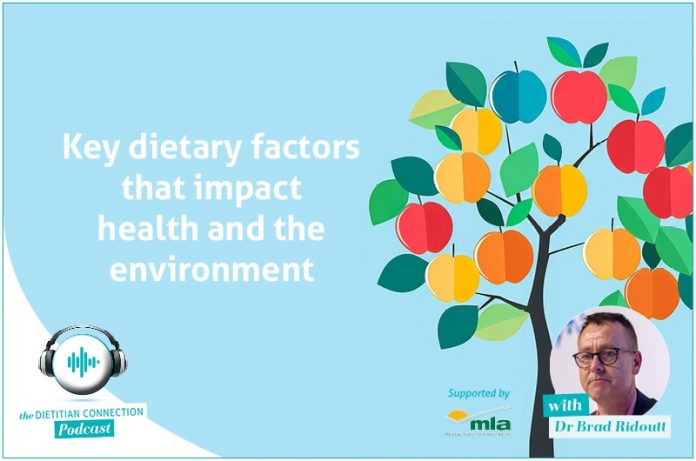How can dietitians support eating practices that improve diet quality and reduce environmental impacts? In this episode with Principal Research Scientist Dr Brad Ridoutt from CSIRO, we dive into the latest research that unpacks the impact of diet on the environment – in particular, the overconsumption of food and drinks. Dr Ridoutt shares practical tips for dietitians to help their clients minimise food waste through eating in line with dietary guidelines, getting creative with leftovers and storing food safely.
Hosted by Brooke Delfino
Biography
Dr Brad Ridoutt is a Principal Research Scientist with Australia’s national science agency – The Commonwealth Scientific and Industrial Research Organisation (CSIRO). His expertise is in life cycle sustainability assessment in the agriculture and food sectors which is used to address strategic challenges in relation to climate change, water scarcity, sustainable food systems, and sustainable diets. Dr Ridoutt is engaged in a range of international processes relating to the standardization of sustainability assessment and environmental labeling. His research is creating the main evidence base concerning the environmental impacts of dietary habits in Australia.
In this episode, we discuss:
- Factors to consider when thinking about the environmental impact of what Australians eat
- Why portion guidance is key for health and the environment
- Strategies for reducing food waste, as outlined in the Australian Dietary Guidelines (2013)
Additional resources
- Click here to read the Australian Dietary Guidelines (referenced in this episode – Appendix G, page 130)
- Click here to watch our recent webinar Empowering balanced meals with no food waste
Supported by
The content, products and/or services referred to in this podcast are intended for Health Care Professionals only and are not, and are not intended to be, medical advice, which should be tailored to your individual circumstances. The content is for your information only, and we advise that you exercise your own judgement before deciding to use the information provided. Professional medical advice should be obtained before taking action. The reference to particular products and/or services in this episode does not constitute any form of endorsement. Please see here for terms and conditions.



